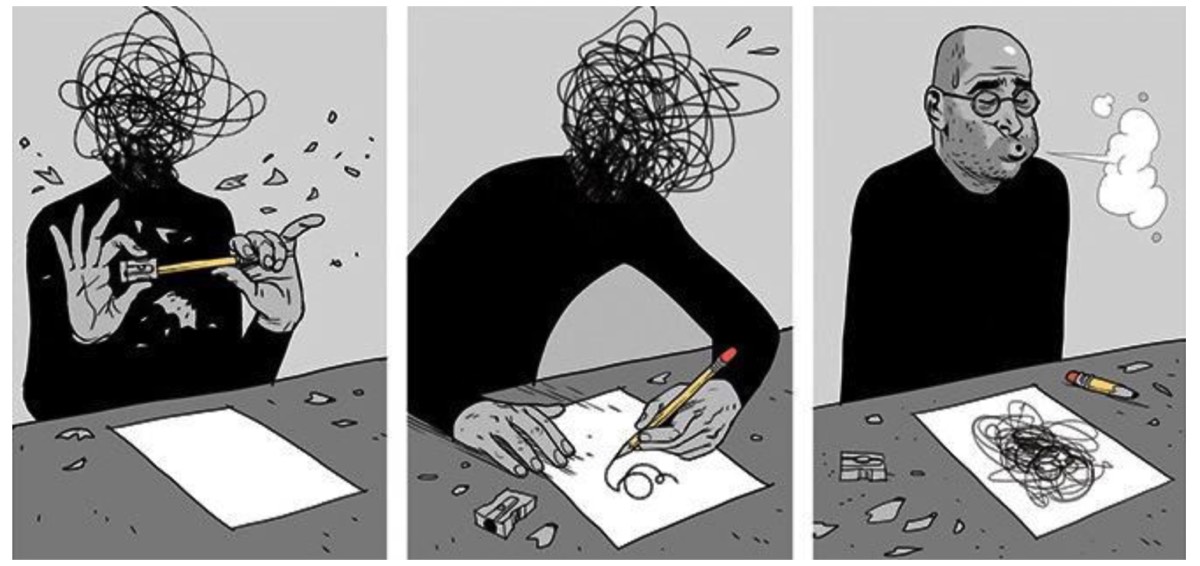FAQs

What are your fees?
Why do people seek therapy?
What is Art Therapy?
What is Sand Tray Therapy?
What can I expect in a therapy session?
What benefits can I expect from working with a therapist?
What if I don't know what my goals are for therapy?
Is therapy confidential?
What is FDA approved to treat depression, anxiety, and insomnia, and yet has no side effects?
“I hope these answers have been helpful. When you feel ready, I hope you give me a call.”
Sincerely,
Brian Lewis, MFT, ATR
(530) 320-1348
Providing kids, teens, individual, and family counseling.
Within a comfortable, serene, and supportive atmosphere you can achieve the personal growth you are striving for. Deciding to make a change is half the battle.
Treatment specialization includes:
My fees are:
Written reports provided upon request, with a minimum charge of $300. I do not accept any insurance, but I can provide you with a monthly invoice that you can submit for any possible Out Of Network benefits. For your convenience, I accept all major credit cards.
Why do people seek therapy?
People come into therapy for many reasons. Some need to respond to unexpected changes in their lives, while others seek self-exploration and personal growth. When coping skills are overwhelmed by guilt, doubt, anxiety, or despair, therapy can help. Therapy can provide support, problem-solving skills, and enhanced coping for issues such as depression, anxiety, lack of confidence, relationship troubles, unresolved childhood issues, bereavement, spiritual conflicts, stress management, body image issues, and creative blocks. People seeking psychotherapy are willing to take responsibility for their actions, work towards self-change and create greater awareness in their lives.

What is Art Therapy?
Art therapy is the therapeutic use of art making, within a professional relationship. Art therapy is therapy where one’s drawings can be used to bridge the communication gap between couples and families. You’ve probably heard that “a picture can say a thousand words.” Well, that’s true. Especially if you are not sure what the best words are to describe your feelings, or if the way you’ve been saying things is part of the problem. By making a piece of art that describes, for instance, “What it feels like to be me” an individual is pushed to express themselves in a unique and suddenly coherent way. Quite often in my sessions people are surprised by what they see in their own artwork. It is like their brain knows what to say, but needs a way to express itself. That surprising insight is what allows us to break free of our problems and begin moving in a more healthy direction.
What is Sand Tray Therapy?
Sand Tray Therapy is a form of art therapy in which the client chooses from a huge collection of small figures, animals, houses, and others symbolic items to create a dream-like scene or story in a shallow box or tray filled with sand. The sand tray itself is just large enough to fill your field of vision...so that as you play you can become lost in the world you create. Then the symbolic stories work much like dreams, in that the unconscious gets a chance to speak. Over the course of a few weeks, these stories tend to change from scenes of conflict to tales of harmony. This transformation is then echoed throughout one’s life. Sand Tray Therapy is excellent for all ages, but is especially great for kids. Come on in and give it a try.
What can I expect in a therapy session?
During sessions you are expected to talk and/or express yourself creatively about the primary concerns and issues in your life. A session lasts 50 minutes, but some people request longer sessions. Usually weekly sessions are best. Some people who are in crisis or extreme distress need more than one session per week, at least until the crisis passes. During the time between sessions it is beneficial to think about and process what was discussed. At times, you may be asked to take certain actions outside of the therapy sessions, such as reading a relevant book or keeping records. For therapy to "work," you must be an active participant, both in and outside of the therapy sessions.
What benefits can I expect from working with a therapist?
A number of benefits are available from participating in psychotherapy. Often it is helpful just to know that someone understands. Therapy can provide a fresh perspective on a difficult problem or point you in the direction of a solution. Many people find therapy to be a tremendous asset to managing personal growth, interpersonal relationships, family concerns, and the hassles of daily life. The benefits you obtain from therapy depend on how well you use the process and put into practice what you learn. Some of the benefits available from therapy include: * Attaining a better understanding of yourself and your personal goals and values * Developing skills for improving your relationships * Finding resolution to the issues or concerns that led you to seek therapy * Find new ways to cope with stress and anxiety * Managing anger, depression, and other emotional pressures * Improving communications skills - learn how to listen to others, and have others listen to you * Getting "unstuck" from unhealthy patterns - breaking old behaviors and develop new ones * Discovering new ways to solve problems * Improving your self-esteem and boosting self-confidence
What if I don't know what my goals are for therapy?
If you aren't sure what your goals are for therapy, your first task is to figure that out. It may take several sessions before a direction is clarified. During the course of therapy your goals may change. However, establishing a direction for therapy will help you get the most out of the experience.
Is therapy confidential?
In general, the law protects the confidentiality of all communications between a client and a psychotherapist. Information is not disclosed without written permission. However, there are number of exceptions to this rule. Exceptions include: * Suspected child abuse or dependent adult or elder abuse. The therapist is required by law to report this to the appropriate authorities immediately. * If a client is threatening serious bodily harm to another person/s. The therapist must notify the police and inform the intended victim. * If a client intends to harm himself or herself. The therapist will make every effort to enlist their cooperation in insuring their safety. If they do not cooperate, further measures may be taken without their permission in order to ensure their safety. *Or if a judge issues a legitimate court order. However, this instance is rare.
What is FDA approved to treat depression, anxiety, and insomnia, and yet has no side effects?
The Alpha-Stim SCS Stress Control System. This is a small medical device, about the size of an MP3 player with soft ear clips, which emit subtle Cranial Electrotherapy Stimulation. Each treatment session, which lasts 20 to 60 minutes, leaves the user alert while inducing a relaxed state. Anxiety is often reduced immediately and the benefits usually last for several days. A bounty of research from the past 26 years reveals significant results for 91% of users.
The Alpha-Stim SCS induces a relaxed state and enables the user to focus attention on the task at hand. The Alpha-Stim SCS is well tolerated and very safe, in contrast to drugs, many of which have been proven to have undesirable side effects and can be addictive. “I am so confident in the benefits of the Alpha-Stim SCS to help a variety of people, that if you sign up today and I’ll let you try one for FREE.” BL
